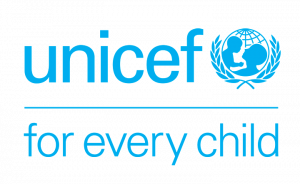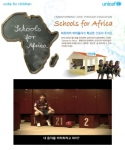Despite Progress, Women Still Subjected to Widespread Violence and Discrimination
Despite Progress, Women Still Subjected to Widespread Violence and Discrimination
Development Progress Depends on Equality for Women and Girls
Despite great progress for women in the past several decades, women throughout the world are still subjected to discrimination, violence and exploitation, UNICEF Executive Director Ann M. Veneman said today.
“Around the globe today, especially in developing countries, girls and women suffer in silence out of range of the cameras and off society’s radar,” Veneman said, giving the keynote address at the Annual International Women’s Day Luncheon in Washington, D.C. “In too many nations and regions, women are still devalued and denied or treated as second-class citizens. They are the victims of gross inequity or all too often, much worse.”
Stressing the critical link between equality for women and development progress, Veneman drew attention to widespread abuse and exploitation of women and children, such as the sexual violence committed in armed conflict, trafficking, and practices such as honour killings, dowry crimes, early marriage, and female genital cutting/mutilation.
“Violence against women is the extreme form of inequality, and it is hard to think of an act against women that can be more damaging or enduring than sexual violence,” Veneman said.
Noting that sexual violence is not limited to any particular country or culture, Veneman said it takes on new dimensions in developing countries and conflict zones. During the 1994 genocide in Rwanda, 500,000 women were raped and beaten, often by men known to have HIV, Veneman said.
Veneman told the gathering about some of the girls and women she met last week in the Democratic Republic of Congo who had been sexually assaulted. They included a 12-year-old girl, an orphan, who went to collect firewood and was raped and beaten by four men in the bush and a 60-year-old woman who was tied up and raped and beaten by two soldiers who attacked her when she went to the field to look for food for her family.
“Rape as a weapon of war is used to terrify and demoralize communities, to exact vengeance on the men through the women, or because too many perpetrators simply believe they can do so with impunity,” Veneman said.
She also drew attention to female genital mutilation, which is practiced in many countries and has severe and lasting physical effects. Globally, an estimated 100 to 140 million women have undergone the procedure and an estimated 3 million girls are subjected to the practice every year.
The nature and scale of violence against children globally will be detailed in the Secretary-General’s Study on Violence Against Children to be published in October 2006. The study is being developed in close consultation with UNICEF, which supports programmes throughout the world to protect children from violence, abuse and exploitation.
Veneman also stressed the importance of education, particularly for girls. When girls are educated, they are more likely to be able to protect themselves from disease, including HIV/AIDS, as well as from abuse and exploitation.
“A society cannot possibly marginalize half its population and expect positive outcomes,” she said. “The empowerment of women is not just an issue for women, it is an issue for everyone.”
The Annual International Women’s Day Luncheon is organized by the United Nations Information Centre, the UN Foundation, the U.S. Fund for UNICEF as well as UN agencies and NGOs.
유니세프한국위원회 개요
유니세프한국위원회는 한국에서 유니세프를 대표하는 기관(비영리법인)으로서 한국위원회의 주된 임무는 세계 어린이를 위해 국내에서 세계 어린이 현황과 유니세프 활동을 널리 알려 어린이돕기 기금을 조성하는 것입니다. 또한, 아동의 권리 홍보 및 모유수유 권장, 세계교육 등의 사업을 통해 어린이 권리를 신장하는 활동도 함께 펼쳐 나갑니다. 유니세프한국위원회가 국내에서 펼치는 모든 활동은 유니세프가 전세계적으로 펼치고 있는 어린이 구호활동을 지지하기 위한 것입니다.
웹사이트: http://www.unicef.or.kr
연락처
유니세프한국위원회 홍보부 김재명, 02-735-2315, 018-241-2098, 이메일 보내기



![방탄소년단의 글로벌 팬미팅 BTS 5TH MUSTER [MAGIC SHOP]에서 진행된 유니세프 부스 방탄소년단의 글로벌 팬미팅 BTS 5TH MUSTER [MAGIC SHOP]에서 진행된 유니세프 부스](https://file.newswire.co.kr/data/datafile2/thumb/2019/10/3554238800_20191024170202_4476783960.jpg)
